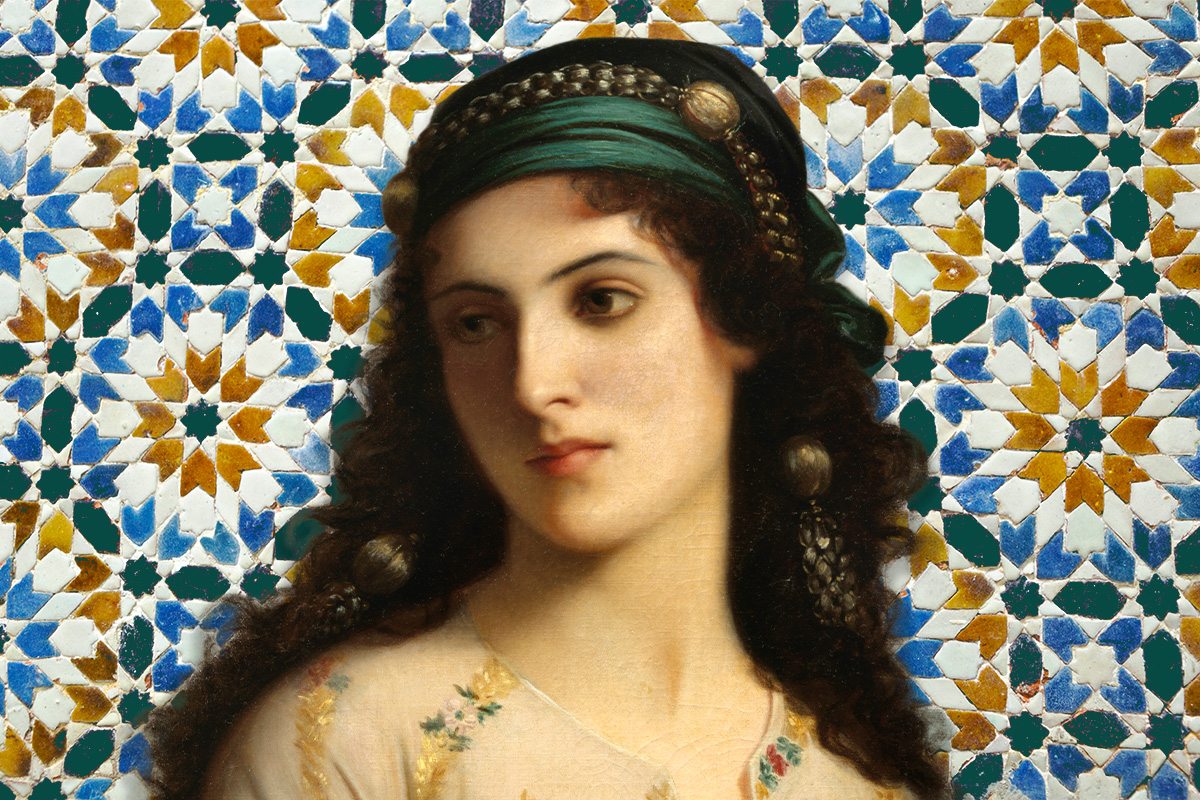It’s so easy to look into the Jewish past only through an Ashkenazi literary lens. Acclaimed writers like Shalom Aleichem and Isaac Bashevis Singer have colored our understanding of Jewishness then with tales of the shtetls, yeshiva boys and Eastern European Jewish traditions. Their most acclaimed works gained even more recogniton through blockbusters “Fiddler on the Roof” and “Yentl,” only reinforcing to a wider audience that Ashkenazi Jewishness was the dominant way of being for our Jewish ancestors.
Of course, this isn’t true. The Jewish diaspora has always included Sephardim and Mizrahim, and voices from within those communities have brought to life their histories in delicious, vibrant works of literature. It’s hightime that we cherish them.
So let’s start with “Mazaltob.”
“Mazaltob,” written by French-Algerian Jewish writer Blanche Bendahan in 1930, is the first feminist modernist Sephardi novel. It tells the story of Mazaltob (in Ladino, “v” sounds are replaced with “b” sounds), a beautiful, intelligent young Jewish woman who lives in the Juderia of Tetouan, Morocco at the beginning of the 20th century. Mazaltob is fiercely loyal to her traditional Maghrebi Jewish community, which expects her to marry young and produce many children — specifically with a despicable man named Jose, who does not feel the same obligations to the Juderia that Mazaltob does. But she also yearns for arts and education, freedom from her homeland and to be with her love, a half-Jewish, half-Christian Frenchman named Jean.
This is a poignant coming-of-age novel which explores themes of feminism, decolonization, diaspora, orientalism and the struggle between modernity and tradition. The text is rich and lush in its descriptions of North African Jewish life and customs; it’s also slippery in its point of view, meandering between narrators and voices in a way reminiscent of fellow modernist feminist writer Virginia Woolf. “Mazaltob” provides a window to the past for young Sephardi women who are deserving of a literary heroine of their own.
Thankfully, literary scholar Yaëlle Azagury and historian Frances Malino have translated the work into English from its original French. Their translation — along with essays they wrote introducing and illuminating the work — was published and released by Brandeis University Press on March 15. I spoke with both of them over Zoom last week, and they told me the project took them approximately four years and their goal was to create a translation that was not only accurate, but also captured the text’s poetry and irony and the flavor of Ladino. Azagury and Malino’s translation is allowing the anglophone world to revel in “Mazaltob” and Bendahan’s writing for the very first time.
Ironically, Bendahan received recognition in her lifetime, including an award for “Mazaltob” from the Académie Française — but she and her work have largely been forgotten and erased in cultural memory. Azagury and Malino suggested that a few factors can account for this, namely that “Mazaltob” doesn’t fit neatly into the set boundaries of French national literature, nor in Jewish studies. “We feel it’s been a bit of a neglected field, especially in Jewish studies, when it compares to the overwhelming share of Ashkenazi studies in the U.S. Now, there’s a growing interest in general in Sephardi and Mizrahi studies and it felt like the right moment to bring [“Mazaltob”] in,” Azagury said.
For Malino, the work is also important as a historical document. She told me that when she first read the novel 18 years ago she was in awe of its accurate descriptions of North African Jewish culture that serve almost as an ethnographic study. “I immediately said to myself, this is something that needs to see the light of day in some form or another, because my view of women living in that time, they were feisty and feminists,” she said. “They call themselves feminists. And nobody knows that.”
Despite the novel being nearly a century old, Azagury and Malino believe “Mazaltob” still has resonances for readers now. “In our dedication we point out that [“Mazaltob”] felt like a universal message. It wasn’t really bound to a specific time, there were all these internal boundaries that women put on themselves,” Azagury said. “Of course, they were more exacerbated at that time in the Sephardic milieu and in Tetouan, which was this very old fashion and traditionalist environment, but there are some elements that can be transposed to current debates and for the contemporary generation.”
Their hope is that “Mazaltob” will be reintroduced in classrooms and find appeal among today’s generation of young students whether they are studying history, literature, Jewish studies, Women and Gender studies, Francophone studies or Judeo-Spanish language. And they think “Mazaltob” has an audience outside of academic spaces, too.
Unfortunately, almost none of Bendahan’s other work is translated into English or widely accessible (though some of her untranslated poetry is at the library of the Alliance Israélite Universelle in Paris). As someone who came away from “Mazaltob” craving more of Bendahan’s writing, I found this information to be quite the blow. Luckily, when I expressed this feeling to Azagury, she was able to recommend the work of some writers who were, intentionally or not, following in the footsteps of Bendahan and the Sephardi feminist modernist genre she established. They are Tunisian-Israeli writer Chochana Boukhobza, Egyptian Jewish writer Jacqueline Kahanoff and French-Algerian Jewish writer Annie Cohen.
After speaking with Malino and Azagury, I immediately though of one of my favorie passages from “Mazaltob.” It’s a description of the Moroccan Jewish wedding ceremony, known as Berberisca, in which Mazaltob is being married off to Jose. In it Bendahan sumptuously describes the crown around Mazaltob’s head, the henna on her nails and her procession through the Juderia. At the end of the scene she writes, “And Mazaltob, with eyes shut, is led to her destiny.”
Perhaps, now, it is “Mazaltob” that will lead us, eyes fully open, to a future which empowers Sephardic Jewish feminism of the past.



